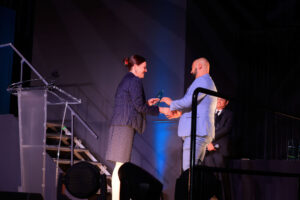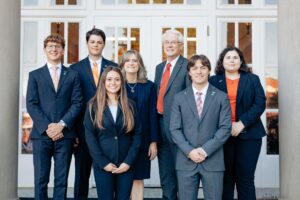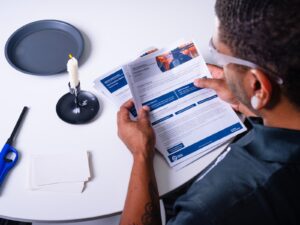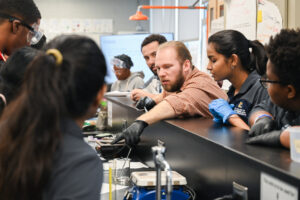Winners of the 2023 Science Prize for Women Announced
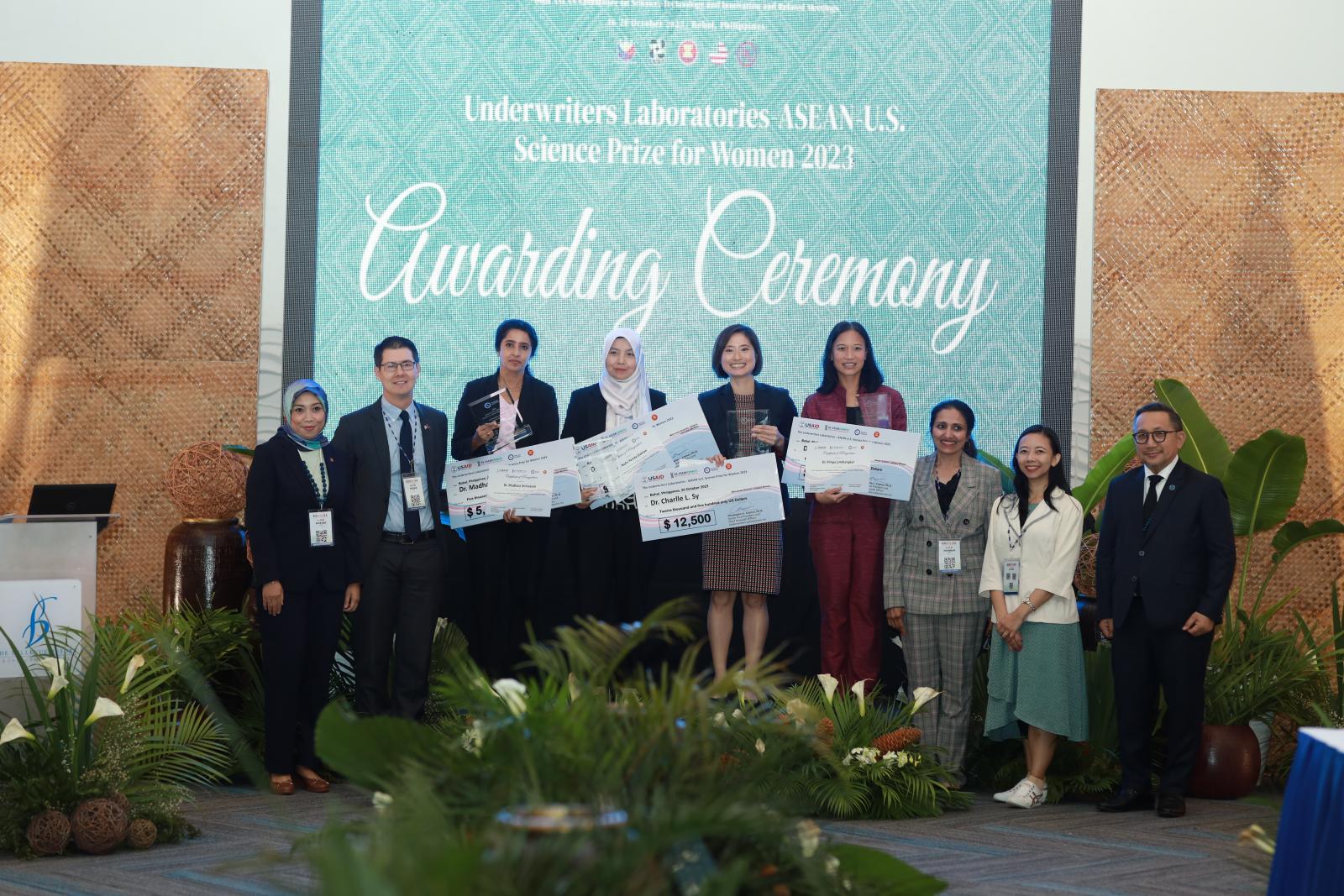
Research on AI-powered renewable energy and EV batteries takes center stage at the award ceremony in Bohol, Philippines
From new ways to create more fire-retardant and efficient EV batteries to using artificial intelligence (AI) to create renewable energy, pioneering research conducted by four women scientists is being financially rewarded through a partnership among UL Research Institutes (ULRI), the U.S. Agency for International Development (USAID), and the Association of Southeast Asian Nations (ASEAN).
“At ULRI, we are proud that this year’s prize marks nine years of recognizing the contributions of women scientists in the ASEAN region and funding grants that help them continue enriching their areas of research,” said Dr. Judy Jeevarajan, Ph.D., vice president and executive director of ULRI’s Electrochemical Safety Research Institute. “For 2023, the prize focuses on electrification, which can be used to advance renewable energy, leading to a sustainable and circular economy. We commend these amazing women for their work that benefits their region and the global community.”
ULRI, USAID, and ASEAN’s Committee on Science, Technology, and Innovation (COSTI) launched the prize in 2014 to empower women to solve health and environmental challenges at a regional level via scientific discovery and rigor. While ULRI funds the award, ASEAN COSTI and USAID promote, administer, and manage the contest. Fifty-one applicants competed this year.
The two First Place winners each received $12,500:
- Dr. Pimpa Limthongkul, a principal researcher from Thailand’s National Energy Technology Center/National Science and Technology Development Agency, won in the “senior scientist” category for her pioneering research in energy storage for electric vehicles and the power grid. She developed a “battery-swapping” electronic platform, which helps make electric motorcycles more affordable and mitigates “range anxiety” by enabling riders to swap drained batteries for fully charged ones without waiting.
- Dr. Charlle Sy, a professor with De La Salle University in Manila, Philippines, won in the “mid-career scientist” category for her innovative research to enable micro-hydro systems to generate electricity more efficiently. While her work uses advanced mathematical modeling techniques that account for uncertainty, leading to more effective and resilient energy solutions for local communities, the use of naturally available water adds significantly to sustainability.
Two women received Honorable Mention and $5,000 each:
- Dr. Madhavi Srinivasan, a professor at Singapore’s Nanyang Technological University, was recognized in the “senior scientist” category for her research on improving the performance of batteries in electric vehicles by leveraging energy efficient design principles. She successfully improved electric vehicle battery capabilities to store more energy, enable faster charging, and enhance overall safety compared to existing market offerings.
- Dr. Nofri Yenita Dahlan, director of the Solar Research Institute at Malaysia’s Universiti Teknologi MARA (UiTM), was recognized in the “mid-career scientist” category for her work on developing an AI-powered, virtual power plant to produce environmentally friendly and cost-efficient renewable energy.
“Congratulations to all the winners,” said ASEAN COSTI Chair Mohammad Nazri Mohammad Yusof. “We are very proud that the Science Prize for Women continues to showcase these remarkable ASEAN women scientists, who play a key role in the safe adoption and use of electrification to transform not only their own communities but the larger ASEAN societies while reducing the impacts of climate change.”
Yohannes A. Abraham, U.S. ambassador to ASEAN, said of the winners: “They are all exceptional scientists whose groundbreaking innovations create efficient electric-powered technologies that advance ASEAN’s energy goals, reduce dependency on fossil fuels, and support economic resilience. Through support from USAID, the United States is proud to empower women in the ASEAN region working in science.”
PUBLISHED



